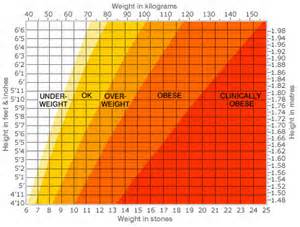Do science and mental health really go well together?
There are three prongs connected to our mental health. The three prongs:
• Emotional well-being
• Psychological well-being
• Social well-being
Our mental health is what determines the way we:
• Handle Stress
• Relate to Other People
• Make the Choices that we make
There is never a period of our lives, from the time we are born through our adolescence and every stage of our adulthood, that mental health is not of key importance.
Unlike physical health where there are charts and specific measures that determine if we fall into the ‘healthy zone,’ it is harder to describe what a person looks like if they are mentally healthy.
There are ideal weights for different heights, ages and body frames. So you know if you are within a healthy weight range or not. It goes beyond that to BMI measures and what physicians consider ‘normal’ weight, ‘overweight’ and ‘obese.’
But how do we know if we are mentally healthy? It is almost as if we have to back into the definition of mental illness and as long as we don’t display these characteristics, then we say we are healthy mentally. The determination is based on behaviors and verbal reports, sometimes reported by other people (as is the case with children all the time.)
The picture of mental health I have been taught would be that of a person who:
• Desires to realize their full potential and works to achieve this goal.
• Shows repeatedly and consistently that they are capable of dealing with stress in a way where they are not overtaken by it or controlled by it.
• Is consistently productive professionally as well as personally.
• Strives to contribute meaningfully to their family and their community.
These are factors that need to be observed but that then means that it is subjective even with attempts to quantify and measure things with a more scientific or precise method.
I could be wrong, but I don’t think we are meant to get to the point where we can ever judge, as is done with ranges of blood glucose for diabetics, a specific range for these ‘measures’ of mental health.
Who can determine what number quantifies ‘consistency’ or what exactly what degree of success a person needs to achieve to be considered productive?
It’s all just something to think about – even with all the advances we are making technologically, I don’t know if mental health is meant to rely on exacts or specifics the way our physical being is.
Hmmm. I wonder if that means I’m not mentally healthy.
ABOUT THE AUTHOR:
Judy is a licensed clinical social worker and has worked extensively as a counselor with children, adolescents, couples and families. Judy’s professional experience in the mental health field along with her love of writing, provide insight into real-life experiences and relationships. Her fresh voice and down-to-earth approach to living a happier, more meaningful life are easy to understand and just as easy to start implementing right away for positive results!



I tend to get frustrated with all the emphasis on ‘evidence based treatments’ – in that it is so very difficult to measure one’s feeling of safety or self esteem or well-being. While I realize that there is some need for this work, I nevertheless like your example of diabetes, for it is near on impossible to measure in the same way – to find the quantitative in the subjective, as it were. Thank you…good post…I hope many your thoughts on this.